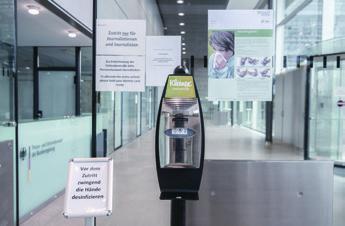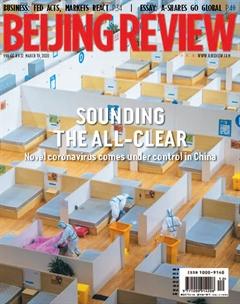A DEADLY COCKTAIL
By Ulrich Sollmann
After the novel coronavirus outbreak, we have new viruses—panic as an emotional virus and the media. You need to look at the other two viruses at the same time too.
The world seems to have drunk a cocktail of viruses that has thrown it considerably out of step. The ensuing shock has triggered a deep, overwhelming uncertainty with many in the Western world feeling threatened or attacked by an external, invisible enemy that could be lurking anywhere. An enemy that like a wave threatens to inundate old, familiar securities.

Check your smartphone to get information or exchange information with friends and relatives, and a wave of hostility, misleading rumors, discrimination, exclusion, panic or unconscious suffering will hit you. Subtle or perceptible psychological shock, often referred to as traumatization, can be experienced not only by people infected by the virus or living in areas affected by it. Especially after the severe acute respiratory syndrome epidemic in 2003, it also has re-traumatizing features.
How do you counter the media coverage and the flood of polarizing comments on social media? How do you keep panic at bay? In Germany, how does one defend oneself against the discrimination, exclusion and xenophobic reporting against Chinese-looking people? The cover and cover story of Der Spiegel magazine in its February 1 issue are a striking example of this xenophobic reporting. They give the impression that the coronavirus was manufactured in China, combined with the implicit message that China has once again proven to be a dangerous red dragon.
Some people who call themselves factual thinkers compare the current development with the fl u in Germany in 2018, that left 20,000 people dead. Then there are the advocates of compartmentalization who say tightly sealed borders can provide security. So nobody should be allowed into the country, or only under quarantine. There are some restaurants in Germany with signs prohibiting Chinese-looking people from entering. The fi nger pointing is stirring up xenophobia that is often present in Germany and there are unparalleled daily reports fanned by political and cultural resentments. Seeking protection then means that I will be OK if you are not OK.
All these people seem to have something in common. They are deeply insecure and dont know how to react when confronted with this virus cocktail. They are afraid, even if they do not want to admit it and their behavior and the resistance to a balanced view of the situation, which is a psychological defense, is a sign of this.
I personally know how difficult it is. In an article about Wuhan, the epicenter of the coronavirus outbreak, I tried to describe factually the typical Chinese behavior patterns in dealing with a crisis in order to make the situation more comprehensible. But at the same time, I distanced myself from the issue, as if I was being objective. As an expert, I did not think I should become emotionally involved. However, while writing about people in such a situation, which is unbelievably terrible, it is no longer possible to remain distant as an expert. I could not perceive that it was also about me and us here in Germany. Thus I ran the risk of losing sight of the people in Wuhan, in China and elsewhere in the world and not seeing their traumatic experience. I would have reacted very differently had I seen them.
As now with the global spread of the coronavirus as well as the two other viruses it seems that we are all infected by the virus cocktail, albeit with varying intensity, it is clear that to seek protection and security there should be open and transparent exchange about the common experience, not just in subgroups.
Resilience research tells us that four factors can make protection, security and recovery possible. Resilience means, among other things, the ability not to give up even after several blows of fate and to manage to steer life back into positive directions. These four factors are:
Non-isolation
Jointly developing resources if they are not available
Confidence that the joint commitment and efforts will be worthwhile
Regaining confi dence that what happens will become predictable, understandable and explainable again
It is not possible to do it alone. Demarcation and exclusion are extremely bad advisers. Pulling together can bring hope and make us regain control of the situation. Trust in oneself and in ones peers, here in Germany as well as in China, can neutralize the virus cocktail.

